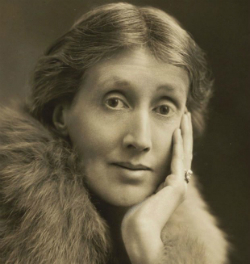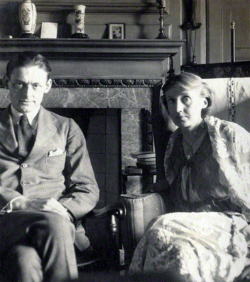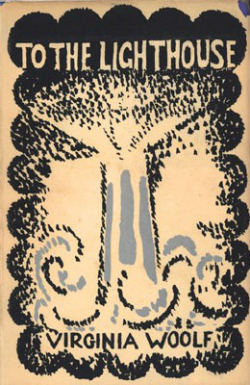Virginia Woolf (1882-1941) was a modern English writer. He played a leading role in the English literature of modernism, with Ao Farol being his most prominent work of the period.
According to her, the role of the writer is:
“ (…) is to transmit the essence, which is always changing in the mind, no matter how complex or intricate its manifestations, with the fewest possible elements that are foreign or alien to it .”
Biography

Adeline Virginia Woolf was born in Kensington, England, on January 25, 1882. The daughter of a bourgeois family, her father, Leslie Stephen, was an editor and literary critic. Under the influence of her father and with a good education, Virginia became interested in the literary world.
While her brothers were educated at a school, she was educated at home, which made her very angry. At the time, women still did not have the possibility to study abroad and for this reason, he spent many afternoons reading books from his father’s library.
When she was just 13 years old, her mother died and almost 10 years later, it was her father.
In 1905, along with some artists, Virginia joined the Bloomsbury Group. The meetings took place at their home and the most important characteristics shared by the group were focused on bourgeois society, which they criticized, on philosophy, aesthetics, the arts and even on the left and liberal tendencies.
In the following year, one of her brothers died, a difficult and remarkable moment in the writer’s life. In 1912, he married writer and editor Leonard Woolf and together they founded Hogarth Press in London.

In 1915 he released his first novel “ A Viagem ”. Thereafter, Virginia began to work as a writer and only years later did she begin to be recognized with the publication of “ Senhora Dalloway ” in 1925.
Death
Virginia committed suicide in Lewes, England, on March 28, 1941, at the age of 59. Before the incident, she wrote two letters, one to her husband, and another to her older sister, Vanessa Bell. Virginia drowned in the River Ouse, and for that, she put stones in her coat pocket.
The letter from Virginia to her husband follows:
“ Honey,
I’m sure I’ll go crazy again. I feel that we cannot go through another of those terrible times. And this time, I won’t recover. I start to hear voices and I can’t concentrate. So I am doing what seems to me to be the best thing to do. You have given me the greatest happiness possible. You have been, in every way, everything anyone could be. I don’t think two people could have been happier, until the arrival of this terrible disease. I can’t fight anymore. I know that I’m ruining your life, that without me you could work. And you will, I know. See that I can’t even write this properly. I can not read. What I mean is that I owe you all the happiness in my life. You have been entirely patient with me and incredibly good. I mean that – everyone knows that.If anyone could have saved me it would have been you. Everything is gone for me, except the certainty of your kindness. I cannot continue to ruin your life. I don’t think two people could have been happier than us.
V. ”
Curiosities
- With her father’s death in 1914, Virginia attempted suicide by jumping out of a window. However, it was low and suffered only a few injuries.
- During one of her mad crises, Virginia claimed that the birds sang in Greek.
- Virginia was bisexual and had some affairs with women. And, at the age of 27, he stated that he did not like sex.
Main Works

Virginia’s works are full of social, political and feminist issues. Owner of a revolutionary spirit, he wrote novels, short stories and essays. Check out some of the outstanding works below:
- The trip (1915)
- Night and day (1919)
- Jacob’s room (1922)
- Mrs. Dalloway (1925)
- To the lighthouse (1927)
- Orlando: a biography (1928)
- A roof all yours (1929)
- The waves (1931)
- The years (1937)
- Between the acts (1941)
- The three Guineans (1938)
Phrases
- ” Women, for centuries, served as a mirror to men for having the magical and delicious power to reflect an image of man twice as big as the natural .”
- ” I really don’t like human nature unless it’s all seasoned with art .”
- ” The poet gives us his essence, but prose takes the form of the whole body and the whole mind .”
- “ We are undone by the truth. The life is a Dream. It is the awakening that kills us . ”
- “ There are those who look for the priest, others take refuge in poetry, I look for my friends .”
- “ As a woman, I don’t have a country. As a woman, my country is the whole world . ”
